Episodes
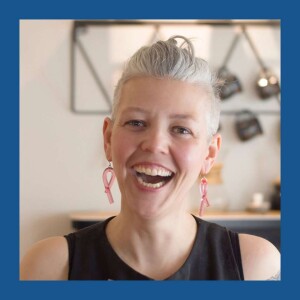
Thursday Mar 04, 2021
Thursday Mar 04, 2021
This week on Papa PhD, I'm bringing you my recent conversation with Kerri Twigg, career development coach, TEDx speaker, and author of “The Career Stories Method”. During our conversation, we talked about her book and about how her approach applies to PhDs transitioning out of academia and wanting to learn how to retell the ir graduate school stories. Kerri also turned the tables on me and put my career journey under the microscope, during our chat, which felt vulnerable at first, but was an interesting, refreshing exercice. I think you're really going to like this one!
What you’ll learn about in this episode:
Why "brain only" career decisions often fail
Imposter syndrome in graduate school and after a career transition
A post-PhD pivot is NOT starting from scratch - it's reorganizing the arrows in your quiver
The power adopting practices that promote self-love and dial down negative self-talk
Why the academic CV doesn't work outside academia
The importance of changing your words
Why you shouldn't wait to be done to reach out to people in industry
Do you enjoy Papa PhD? Leave me a comment here - one short sentence is enough! And be sure to include your Twitter handle – that way, I can thank you personally!
Support the show on Patreon !
Kerri Twigg is the founder of Career Stories. She has been helping people find and share their stories with confidence for nearly 20 years, seven in the career management sector. Kerri helps people figure out what makes them awesome and how that helps their career, whether they aim for a "job-job" or running their own business. And, if they're not sure what kind of work, she helps with that too. She has taught at theatres, universities, and even a boathouse.
Thank you, Kerri Twigg!
If you enjoyed this interview with Kerri, let her know by clicking the link below and leaving her a message on Twitter:
Click here to thank Kerri Twigg on Twitter!
Click here to share your key take-away from this interview with David!
Download "Tools for Your PhD Journey" !
Kerri’s pearls of wisdom:
“I don't think you can start from scratch – I think it's a romantic idea. It's still there... I think it's about finding what's useful, so, what you can carry... What you can carry forward. And then there might be pieces that... There might be pieces that you let burn, right? And there might be dreams that you kind of go "Okay, that's not it." But that dream might have not even been really the dream any how. It's it just the thing that was closest to it, to what you thought you wanted to do, and it led you on the path. That you didn't get that doesn't matter when something else might make you happier and you can have bigger impact with it.”
“A lot of academics, you'll kind of talk about what you studied or the name of your paper. And when people are hiring you for a job, they want to know how you work and what things you accomplish. And they want specific examples that's just not a name of a paper. Because you could have written a paper, but I don't know if you're a great researcher, I don't know if you're ethical, I don't know if you met the deadlines, I don't know if you helped people. So, on a resume, the how you work is more important than that you got published.”
This episode’s resources:
Kerri Twigg | LinkedIn
Kerri Twigg | Twitter
Kerri Twigg | Instagram
Career Stories | Website
The Career Stories Method | Book
Join the Papa PhD Postgraduate Career Exploration Group!
You might also like the following episodes:
Chris Humphrey – Rebranding the PhD
Inês Campos Costa – Taking the Turn No One Expects
Jinelle Wint – Student Advocacy and Professional Development
Megan Kirk Chang – Bringing Down Stress
Need to communicate your research?
The research you produce is only as good as the way you communicate it.
Scientistt Studio is an exciting science communication company that brings your research to life through a variety of services.
From as little as £59,
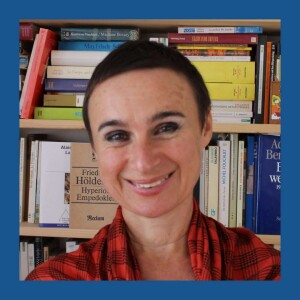
Thursday Feb 25, 2021
Thursday Feb 25, 2021
Télécharge la "Boîte à outils pour le doctorat" maintenant !
Cette semaine, j'ai le grand plaisir de partager avec vous ma conversation avec Martha Boeglin à propos de la bête noire de beaucoup de thésards et thésardes – la rédaction de thèse, notamment les pièges qu'elle peut nous tendre et les tactiques et stratégies pour les éviter ou pour se débloquer.
Ce que tu apprendras dans cet épisode :
Comment se passe un doctorat en sciences humainesÉcrire sa thèse commence par lire - techniques et stratégies de lectureL'écoute active en colloque doctoral comme méthode mise en place d'un sujet de thèse qui n'a pas encore pris formeL'angoisse de la page blanche - causes et solutionsÉcran vs papier est-ce qu'il faut en privilégier un par rapport à l'autre ? Et pourquoi pas s'enregistrer ?L'intérêt de participer à des ateliers d'écriture créativeTu aimes Papa PhD ? Laisse-moi un commentaire ici - une seule phrase suffit ! Et inclus ton identifiant Twitter – comme ça je pourrai te remercier personnellement !
Lorsqu’elle a voulu rédiger sa thèse, Martha Boeglin s’est vue paralysée durant de longs mois par l’angoisse de la page blanche. Incapable d’écrire, elle s’est intéressée au phénomène de l’écriture. Elle a alors découvert que les blocages sont normaux - et qu’il existe des techniques d’écriture créatives pour les dépasser. Plus : certaines techniques d’écriture recèlent une puissance presque magique. Sa passion pour les techniques d’écriture créative était née. Avec une double conséquence : d’abord, une fois les blocages dissipés, Martha a rédigé sa thèse dans une vague d’euphorie. Ensuite, son titre de docteur en poche, elle a créé en 2002 les ateliers d'écriture Scriptoria. Leur but ? Faciliter la rédaction d'une thèse : quand on connait les techniques adaptées, alors rédiger n'est plus une corvée - ça peut même devenir une source de joie. Or, c’est dans la joie qu’on est au sommet de ses performances.
Merci Martha Boeglin !
Si cet entretien avec Martha Boeglin t'a plu, fais-lui en part en cliquant sur le lien ci-dessous et en lui laissant un message sur Twitter :Clique ici pour remercier Martha Boeglin sur Twitter !Clique ici pour partager avec David le principal message que tu retiens de cet épisode !
Joins-toi au groupe d'exploration de carrières Papa PhD !
La perle de sagesse de Martha :
« C'est là que j'ai découvert un énorme tabou à l'université, à savoir que, au moment d'écrire, tout le monde souffre – même les professeurs les plus intelligents, même les auteurs les plus chevronnés. Écrire est difficile, mais c'est un tabou à l'université. Ces difficultés d'écriture, on n'en parle pas ou très peu, ce qui fait que des jeunes, des étudiants, des doctorants qui sont en proie à des blocages peuvent en arriver à douter de leur capacité, de leur intelligence, voire à abandonner. Donc j'ai découvert que mon problème avait un nom: blocage, angoisse de la page blanche. J'ai découvert que l'angoisse de la page blanche est normale, qu'elle fait partie du processus – j'ai envie de dire naturel – de la rédaction, pas de quoi s'inquiéter, pas de quoi se remettre en question. Surtout, pas de quoi laisser tomber. »
Les ressources de cet épisode :
Martha Boeglin | LinkedInMartha Boeglin | TwitterScriptoria | Scriptoria.org | Groupe Facebook | Youtube
Tu aimeras aussi ces épisodes :
Boîte à outils pour les études doctorales – Mon cheminement : PapaPhD.com/37Carine Monat – Journalisme scientifique : PapaPhD.com/40Marc Chevalier – Transfert de connaissances : PapaPhD.com/76Martin Primeau – Communication scientifique : PapaPhD.com/44; PapaphD.com/45
Envie de lancer un podcast?
Mon ami et collègue podcasteur Marco Bernard et son Académie du Podcast ont ce qu'il vous faut si vous avez une idée, mais qu'il vous manque les connaissances pour mettre en place votre podcast.Dans la formation Podcasting 101,
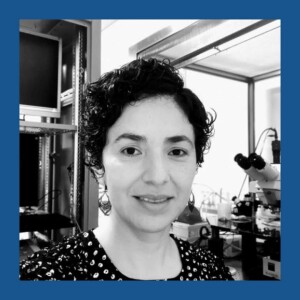
Thursday Feb 18, 2021
Thursday Feb 18, 2021
Many of my guests have talked about tuning into and pursuing your passion, when considering career options. In this episode, I talked with Mariana Vargas-Caballero about how she discovered her passion for science and about the choices and principles that brought her into the academic life.
What you’ll learn about in this episode:
The value of doing a masters before embarking on a PhDHow a good lab culture can empower you as an international studentHow exercises like drawing and annotating your lifeline and drawing mind maps of your values and interests can inform your career decisisonsThe advantages of obtaining fellowshipsGrowing your skillset to become a better candidateEmbracing the reality of the academic careerThe importance of setting life1work boundariesHow to deal with impostor syndrome as an academicThe importance in engaging in groups and activities outside your researchDo you enjoy Papa PhD? Leave me a comment here - one short sentence is enough! And be sure to include your Twitter handle – that way, I can thank you personally!
Support the show on Patreon !
Mariana Vargas-Caballero is a Mexican/British Neuroscientist. She obtained a degree in Biology in Mexico. She then trained for a Ph.D. in Neuroscience at the University of Cambridge. With fellowship funding from Wellcome Trust, she obtained postdoctoral training at the University of California at Berkeley, the University of Toronto, and the University of Oxford.In 2012, Dr. Vargas-Caballero established her independent research group at the University of Southampton where she is a Lecturer in Neuroscience. Her research interests focus on understanding how brain circuits are affected by dementia.
Thank you, Mariana Vargas-Caballero!
If you enjoyed this interview with Mariana, let her know by clicking the link below and leaving her a message on Twitter:Click here to thank Mariana Vargas-Caballero on Twitter!Click here to share your key take-away from this interview with David!
Download "Tools for Your PhD Journey" !
Mariana’s pearls of wisdom:
“The reality is – and it's something that I discuss often with my students – is to land these positions, funnily enough, what you need rather than... Well, you need the skills but you need papers. You need to have demonstrated with publications that you can push those skills to fill in gaps in knowledge. And so the skills that I have are in the area of electrophysiology. And also those extra trainings that I have had have allowed me to implement techniques in molecular biology or behavioural analysis to ask questions related to dementia or memory. And so... Essentially it's the combination of those papers and those skills that I think put me in a really good position when I applied for this job, both of those things.”“I realised that I value knowledge and understanding as a part of my job. And so I knew I really, really wanted that. And at the same time, I wanted to have discovery and this communication with the new generations. So that kind of put it all in perspective and I said "I know that it's going to be very hard, but I believe that an academic job is going to be right for me.”“Don't let being pregnant, or having plans, or anything like that stop you from making these applications, because you never know.”
This episode’s resources:
Mariana Vargas-Caballero | LinkedInMariana Vargas-Caballero | TwitterMariana Vargas-Caballero Lab | Website ; InstagramBook suggestion | Build your Own Rainbow
Join the Papa PhD Postgraduate Career Exploration Group!
You might also like the following episodes:
Jonathan Weitzman – Interdisciplinarity and industry partnershipsPaulo Oliveira – Entrepreneurship and outreach as an academicPatrícia Monteiro – Being a woman in research and investing in outreachPaul Yachnin – A modern vision of higher education and grad school
Need to communicate your research?
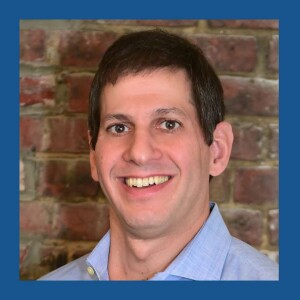
Thursday Feb 11, 2021
Thursday Feb 11, 2021
In this episode, I have the pleasure of talking science communication with former U.S. Senate and House of Representatives Chief of Staff and president of Bayer Strategic Consulting, Mark Bayer. During our conversation Mark and I talked about best practices when communicating science to non-academic audiences, but we also talked about the interface between science and policy, and the role researchers and scholars can play in this sphere.
What you’ll learn about in this episode:
The importance of considering people's emotions when presenting them with factsWhy you should focus on showing the trailer, not the whole movieTalking sicence to management, investors, and policy makersKey points to making talks or presentations engaging and memorablePoints of access into policy for scientists (even graduate students!)The value of being authentic and not transactional in your networkingDo you enjoy Papa PhD? Leave me a comment here - one short sentence is enough! And be sure to include your Twitter handle – that way, I can thank you personally!
Mark Bayer is an international keynote speaker, coach, and course instructor helping scientists and engineers get funding, gain influence, and build relationships with their most important stakeholders. A former Chief of Staff in the U.S. Senate and House of Representatives, Mark designs and delivers interactive talks and true-to-life training that empower listeners with the same proven, powerful tools he used to effectively communicate and navigate in the U.S. Congress. Marks work has appeared in Science and The New Yorker magazine, and he has been featured in IEEE-USA's "Lessons on Leadership" column. A guest lecturer in the Science Policy Bootcamp course at Cornell University's School of Engineering, Mark also hosts the weekly podcast When Science Speaks, which explores communication, science policy, and career issues. Mark is a magna cum laude graduate of Cornell University and earned his Master in Public Policy at Harvard University's Kennedy School of Government.
Thank you, Mark Bayer!
If you enjoyed this interview with Mark Bayer, let him know by clicking the link below and leaving him a message on Twitter:Click here to thank Mark Bayer on Twitter!Click here to share your key take-away from this interview with David!
Download "Tools for Your PhD Journey" !
Join the Papa PhD Postgraduate Career Exploration Group!
Mark’s pearls of wisdom:
“These kinds of things like distilling all this information that you have as a scientist and then translating it and communicating it to a non-expert in a way that's engaging and memorable – that's hard! That's not an easy task. And so, I understand that it's something that I've spent 20 years doing... I think I would probably blow up a lab if I was asked to do an experiment, so I sort of turn the mirror on myself. But I want people to feel like this is a skill, though. That they can learn it – they practice it, they get instruction in it, and they continue to use it. They'll get better and better and then start enjoying it a lot, which leads to the virtuous cycle of doing it more and getting even better.”“If you have interest in getting involved in policy, do it. Don't put it off. And dont think that you need to do something out of the gate that's so monumental and time-consuming. It can be as easy as following your state representative on Twitter and seeing what she's doing. And when she does something you agree with, retweeting it. You can do that from your couch, if you want to – you can do that anywhere. And that's getting involved at early level.”
This episode’s resources:
Mark Bayer | LinkedInMark Bayer | TwitterBayer Strategic Consulting | BayerStrategic.com ; LinkedInScience Speaks Podcast | WebsiteSign Up for Mark's course: "How to Effectively Communicate Your Science to Any Audience" - Text "science speaks" to 44222.
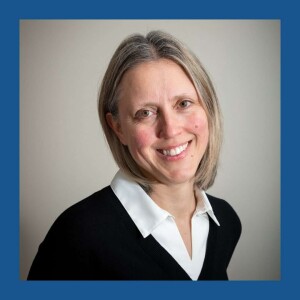
Thursday Feb 04, 2021
Thursday Feb 04, 2021
Télécharge la "Boîte à outils pour le doctorat" maintenant !
La vie n’est pas faite de belles lignes droites. Pour mon invitée d’aujourd’hui, Marie-Andrée Fallu, son trajet académique a été assez linéaire jusqu’au post-doctorat, mais différents facteurs sont venus l’orienter vers la carrière qu’elle mène aujourd’hui, loin du terrain et de la recherche… mais pas tant que ça!
Ce que tu apprendras dans cet épisode :
L'intérêt de faire des jobs pendant la maîtriseL'importance de parler avec des gens autour de vous – professeurs, assistants – et de réseauter pendant la maîtrise et le doctoratLes compétences qu'on doit aller chercher après le doctorat, en vue de l'emploi à venirLes stages – un gros plus pour ouvrir ses horizonsAgent de liaison – quels arguments on approrte au pose comme PhD ?Tu aimes Papa PhD ? Laisse-moi un commentaire ici - une seule phrase suffit ! Et inclus ton identifiant Twitter – comme ça je pourrai te remercier personnellement !
Marie-Andrée a obtenu un PhD en géographie de l'Université Laval et a fait des études postdoctorales à l'UQTR. Elle a été engagée en 2006 à titre d'agente de liaison scientifique pour le GRIL, le Groupe de recherche interuniversitaire en limnologie. Elle est employée de l'Université de Montréal, mais son bureau se situe à l'UQTR. Depuis quelques années, elle est aussi la coordonnatrice générale du GRIL.
Merci Marie-Andrée Fallu !
Si cet entretien avec Marie-Andrée Fallu t'a plu, fais-lui en part en cliquant sur le lien ci-dessous et en lui laissant un message sur Twitter :Clique ici pour remercier Marie-Andrée Fallu sur Twitter !Clique ici pour partager avec David le principal message que tu retiens de cet épisode !
Joins-toi au groupe d'exploration de carrières Papa PhD !
Les perles de sagesse de Marie-Andrée :
« Je trouve qu'il y a des choses qui n'ont vraiment pas changé et c'est surprenant – par contre, on en parle – c'est tout le côté détresse psychologique et comment ça peut être difficile. Et je ne pense pas qu'il y en avait moins dans mon temps, sauf qu'on en parlait moins. Les gens vivaient leurs affaires et, à un moment donné, ils abandonnaient, et tu ne savais pas trop pour quoi. Ils n'en avaient pas parlé et tu te disais "ils n'aimaient pas ça tant que ça." Mais ce n'était pas dit, tandis qu'aujourd'hui, eh bien, ils en parlent, ils en discutent, ils font des retraites d'écriture, et je suis certaine que ce sont des endroits où ils peuvent discuter de ça. J'aurais adoré avoir ça pour pouvoir, justement, échanger. Parce qu'on a tous côtoyé ou, à un moment donné, nous-mêmes, eu des doutes - "Mon dieu, est-ce que je vais le finir, mon doc, un jour, ou non?" »« Je n'ai pas l'impression d'avoir fait tout mon doctorat pour rien. Tout ce que j'ai acquis en termes de compétences, etc., eh bien, je l'utilise, ensuite, juste différemment – pas pour la recherche, mais pour faire sortir la recherche des universités. »
Les ressources de cet épisode :
Marie-Andrée Fallu | LinkedInMarie-Andrée Fallu | TwitterGRIL | GRIL-Limnologie.ca ; Twitter
Tu aimeras aussi ces épisodes :
Elodie Cheyrou – Promotion de la science : PapaPhD.com/91Marc Chevalier – Transfert de connaissances : PapaPhD.com/76Martin Primeau – Communication scientifique : PapaPhD.com/44; PapaphD.com/45Olivier Hernandez – Vulgarisation Scientifique : PapaPhD.com/56; PapaphD.com/45
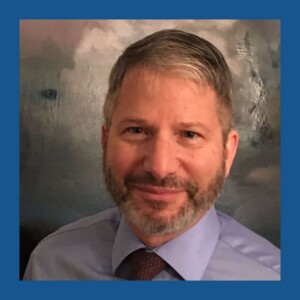
Thursday Jan 28, 2021
Thursday Jan 28, 2021
Higher education is under pressure, these days. It has been for a while, now, but the COVID-19 pandemic may well be the proverbial straw that breaks the camel’s back, and this test is bringing to light some of the fragilities that have been under the radar until now. With me, this week, I have someone who has a deep love for higher education and for students and graduate researchers, and who has explored the question of professional outcomes of PhDs in different domains – Paul Yachnin.
What you’ll learn about in this episode:
Why suspending PhD intake is dangerous for the future of humanities departmentsHow deep-rooted the tenure-track culture is in academia and in facultyThe importance of showcasing career outcomes of PhDs in normalizing non-tenure track/non-academic career pathsWhy graduate researchers should reach out and engage in conversations with peers from other departments and faculties and increase their intellectual mobilityDo you enjoy Papa PhD? Leave me a comment here - one short sentence is enough! And be sure to include your Twitter handle – that way, I can thank you personally!
Paul Yachnin is Tomlinson Professor of Shakespeare Studies at McGill University. From 2013-2019, he was Director of the Early Modern Conversions Project. Before that, he directed the Making Publics Project (2005-2010). His ideas about the social life of art were featured on the CBC Radio IDEAS series, The Origins of the Modern Public. In 2009-2010, he served as President of the Shakespeare Association of America. Among his publications are the books, Stage-Wrights and The Culture of Playgoing in Early Modern England, editions of Richard II and The Tempest, and edited books such as Making Publics in Early Modern Europe and Forms of Association. His book, Making Publics in Shakespeares Playhouse, is forthcoming. For the past eight years, he has been working on higher education policy. He leads the TRaCE McGill Project, tracking the career pathways of 5,000+ PhD graduates from across the university and telling the stories of 150+ of them. He publishes non-academic essays about Shakespeare and modern life, including titles such as Alzheimers Disease: What would Shakespeare Do? and Tragedy as a Way of Life. Paul has also recently participated as an expert in the preparation of Degrees of Success, a report by the Council of Canadian Academies on the current state of the labour market transition of PhD graduates in Canada.
Thank you, Paul Yachnin!
If you enjoyed this interview with Paul Yachnin, let him know by clicking the link below and leaving him a message on Twitter:Click here to thank Paul Yachnin on Twitter!Click here to share your key take-away from this interview with David!
Download "Tools for Your PhD Journey" !
Paul’s pearls of wisdom:
“So, if I say to a young PhD researcher – "So, have you thought about the different careers that might be open to you when you graduate?", it's as if I'm saying "I don't think you're good enough for an academic job". And I'm afraid that the person will also take it that way. So, how do we change thinking about the PhD, as well as the programs? And there is one very good way to do that, and that is to get as many stories, as many voices of people who have graduated and who say: "Yeah! I've got a PhD in English – I'm Executive Director of CBC Ideas". That is an actual case that we've covered a great deal with TRaCE. That person conveys to people doing PhDs now that there are other pathways. Not only are they entirely legitimate and respectable – they're to be sought after.”“I think that it's very important to start conversations with faculty at departments that you're interested in if you're thinking of doing a PhD. And those conversations include just what you said: "How will this PhD help me fulfill my aspirations? How will it help me fulfill this desire I have to know more and to be productively curious in this area of study?
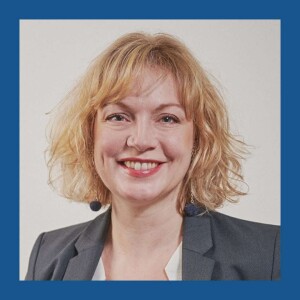
Thursday Jan 21, 2021
Thursday Jan 21, 2021
L’année 2020, marquée par la pandémie de COVID-19, nous a apporté de grands défis et nous a amené à changer nos habitudes, notre façon de vivre en société. L’effort de lutte contre la dissémination du coronavirus a aussi entraîné des débats et des questionnements qui relevaient du domaine scientifique – la virologie et la compréhension du virus, l’épidémiologie et les décisions portant sur le contrôle de la contagion, l’immunologie et la technologie derrière les vaccins d’ARN.L’interface science société a été et est encore au moment où j’enregistre cet épisode, à certains égards, un champ de bataille plus actif que jamais et plus important que jamais et beaucoup de scientifiques ont été appelés à émettre leurs opinions et à partager leurs connaissances sur la tribune publique, autant pour informer que pour dénoncer la désinformation.Dans l’épisode d’aujourd’hui, je parle avec Elodie Cheyrou de son trajet de la recherche fondamentale à son rôle actuel dans la promotion de la culture scientifique en France et nous nous posons des questions à propos de la place qu’auront les scientifiques dans le rapprochement science/société en ce début de XXI siècle.
Ce que tu apprendras dans cet épisode :
La communication scientifique peut te permettre de rester très proche du terrain et des chercheurs tout en restant à l'extérieur de la rechercheLes agences de communication comme école e comme rapprochement au métier de communicateur scientifiqueLa communication en milieu institutionnelL'interface science et société comme enjeu clé des années à venirTu aimes Papa PhD ? Laisse-moi un commentaire ici - une seule phrase suffit ! Et inclus ton identifiant Twitter – comme ça je pourrai te remercier personnellement !
Passionnée par la recherche, Elodie Cheyrou œuvre depuis son doctorat en neurosciences à rapprocher les mondes de la science et de la société. À travers son parcours de plus de 13 ans en agence privée comme en institutions publiques, elle a développé une expertise en relations publiques, communication scientifique, développement de partenariats et animation de réseaux. Aujourd'hui, Elodie participe à la gouvernance de la politique publique de culture scientifique, technique et industrielle à travers la coordination nationale et internationale de la Fête de la science, événement national de référence rassemblant, chaque année, plus de 1,2 millions de visiteurs et 300 000 scolaires.
Merci Elodie Cheyrou !
Si cet entretien avec Elodie Cheyrou t'a plu, fais-lui en part en cliquant sur le lien ci-dessous et en lui laissant un message sur Twitter :Clique ici pour remercier Elodie Cheyrou sur Twitter !Clique ici pour partager avec David le principal message que tu retiens de cet épisode !
Télécharge la "Boîte à outils pour le doctorat" maintenant !
Joins-toi au groupe d'exploration de carrières Papa PhD !
Les perles de sagesse d'Elodie :
« C'était, donc, quatre années pour passer ce doctorat et cette quatrième année a été, quand même, sujet de beaucoup de questionnements. D'une part, l'expérimentation animale commençait, aussi, à me poser beaucoup de questions, donc je me suis dit « Tiens, peut-être que je pourrais aussi faire de la computation, de la modélisation, pour, finalement, ne pas avoir à maniper encore sur des animaux. » Ce n'est pas évident pour tout le monde de faire de l'expérimentation animale, même si on sait pourquoi on le fait et qu'on est convaincu par l'utilité. Et puis, il y avait un autre point qui me pesait, aussi – c'était le côté... Alors, je sais que ça fait hurler souvent les chercheurs quand je dis ça – le côté assez fermé, humainement, de la recherche. J'avais un besoin de travailler vraiment avec des humains, de pouvoir échanger, discuter, partager des idées, brainstormer... »« C'est sûr que dans le contexte actuel on a bien vu que l'information était cruciale et que la connaissance - avoir un bagage scientifique - même si ce n...
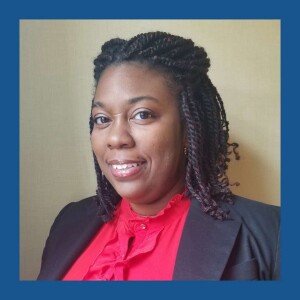
Thursday Jan 14, 2021
Thursday Jan 14, 2021
This week on Papa PhD, we'll be focusing on graduate students and their professional development needs and common blind spots. My guest, Jinelle Wint, did her PhD in the biological sciences and throughout her academic journey, she learned the value of of working on her professional skills, and has coached many students in exploring their career choices.
Take the Papa PhD Listener Survey Now !
Jinelle Wint, PhD, is the Assistant Dean for Academic Affairs for the Graduate School of the Stowers Institute for Medical Research. Jinelle has extensive experience in program management, graduate career professional development, mentoring, and outreach. As a Graduate Career Coach at Stony Brook University, she led one-on-one career coaching sessions and coordinated career exploration seminars. She has served on the executive board of many organizations, held a position in the Center for Inclusive Education, and has advocated for graduate students on local, state, and national levels. Jinelle received her Ph.D. in Molecular Cellular Biology from Stony Brook University in the laboratory of Dr. Howard Sirotkin. She has a bachelor's degree in Biology and General Studio Art from the University of Miami in Coral Gables, Florida.
Download "Tools for Your PhD Journey" !
What you’ll learn about in this episode:
How taking part in student-led programs and events can positively impact your graduate school experience
Internships in university as a path to non-research academic jobs
The importance of time management and of avoiding burnout
The PhD timeline and when to start thinking of career exploration and professional development
Self-assessment as a starting point for planning ahead
Why you should use the ressources offered by your university even if they're not tailored for PhDs
Challenges for international students and advice on how to make the best out of their time in graduate school
This episode’s pearls of wisdom:
“I'm not exactly saying that you can't only think about the professoriate, but, I mean, it is good to have other careers in mind. But even, for example, that you know 100% you're just not gonna give up on being a professor, even dedicating time to getting to that goal outside of lab it's also a good thing. So even if you need to get a postdoc, for example, for your next step, looking into who offers postdoc, who's doing what research – dedicating time to do that outside of your research is always going to benefit you. So even if you're going into academia or outside of academia, what I'm saying is to dedicate the time to developing that and to thinking about your professional development is necessary. And it gives you peace of mind later on that you've done some of the leg work earlier on.”
“It is a struggle. And I know that the PhD takes a lot of time, because I've seen it, and I've lived it, and I had tons of friends who spent 60 hours a week in lab. But if you can take a few hours to do something outside of lab, it actually clears your brain to be like "you know what? I was thinking about this project"... And as you're in there, you don't go into where you get frustrated, you get this cycle of "this is not working". When you take a step away and then come back, things become clear. It's always good to take some time doing some activity that you like to do, or some hobby, and then come back into lab.”
Jinelle's links: LinkedIn – LinkedIn.com/in/jinelle-wint-phd-1b26bb85; Twitter – @DrWint_signalin.
Leave a review on Podchaser !
You might also like the following episodes:
Chris Humphrey – Career Counseling: PapaPhD.com/73
Emily Roberts – Finance for PhDs: PapaPhD.com/8
Falisha Karpati – Skills Development: PapaPhD.com/30
Rebecca Maymon – PhD Recruitment: PapaPhD.com/75
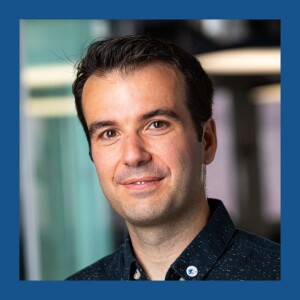
Thursday Jan 07, 2021
Thursday Jan 07, 2021
Hi and happy new year! In this first episode of 2021, I bring you a story you may in part know. A story of changing countries and cultures and of finding new horizons for yourself in the process - in my guest's case, leading to his transition from basic research into business development.
Take the Papa PhD Listener Survey Now !
Fabrice worked as a research scientist in medtech for more than 12 years in top-tier institutes worldwide. He was deeply involved in the entrepreneurial scene leading to multiple startup successes including one IPO. He setup from scratch and led MonacoTech, the first and only innovation program founded by the Monaco Government and French billionaire Xavier Niel. In less than a year, he created a portfolio of 12 hand – selected companies valued over 100M€. He then founded with Brian Frederiksen Monaco Foundry with the ambition to revolutionize the way we turn ideas into global commercial successes. Within a few months they assembled a remarkable team of Serial Entrepreneurs, former Senior Government Advisors and Fortune 500 Executives combining strong corporate expertise with entrepreneurial mindsets.
Download "Tools for Your PhD Journey" !
What you’ll learn about in this episode:
What you can gain by going abroad for the entirety or part of your graduate studies
Different countries have different research cultures
The importance of knowing your "Why" in graduate school and in life, of finding what drives you
Technical aspects of deeptech startup incubation
Why you should start building your network today
This episode’s pearls of wisdom:
“I think it's more about creating an environment where people trust each other, can be truthful with each other. And there is no shortcut to that - there's no tricks. And I feel that's something that's very true with anything - I'm deeply convinced of that. Especially today where we live in an instant gratification society where where you have all these snake oil sellers giving you hacks and tricks and shortcuts. This is bullshit. All the real things in life take time and effort. Hard work. That's it.”
“What I've learned as a PhD and as a scientist was being patient and diligent. Things take time to develop. Being patient enough in the short run to really make sure that you execute on that roadmap as fast as possible.”
X's links: LinkedIn – Linkedin.com/in/Fabrice-Marquet; Twitter – @FabriceMarquet.; Website – MonacoFoundry.com.
Leave a review on Podchaser !
You might also like the following episodes:
Chris Humphrey – Career Counseling: PapaPhD.com/73
Chris Kent – Biomed Startup CEO: PapaPhD.com/11
Emily Roberts – Finance for PhDs: PapaPhD.com/8
Margaret Magdesian – Biotech Startup CEO: PapaPhD.com/21
Need to communicate your research?
The research you produce is only as good as the way you communicate it.
Scientistt Studio is an exciting science communication company that brings your research to life through a variety of services.
From as little as £59, a summary of your work can be narrated, illustrated and animated, leaving you with an engaging video to share with the world.
If that wasn’t enough, as a podcast listener you can get 10% off any Scientistt Studio service using the code “PAPAPHD” when you order.
Click on the button below, explore the range of Scientistt services and use the promo code PAPAPHD. By doing so, not only will you be on your way to better science communication, but you will also be helping me produce the show:
Get 10% on any Scientistt Studio service !
Thanks for being a fan, happy listening and happy sharing!
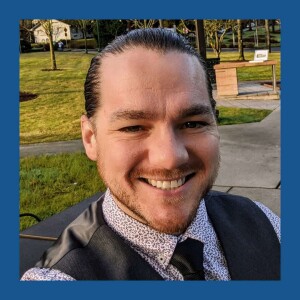
Thursday Dec 31, 2020
Thursday Dec 31, 2020
This week, I'm bringing you my conversation with Eric James Stephens, Founder of ChangeHigherEd, a platform where, in the summer of 2020, being unemployed, he set out to help PhDs understand their value through live-streamed events and workshops that ended up bringing in many thought leaders into the discussion and having over 250 registered attendees. With him, I discussed the pressure COVID has brought on the higher education space and the change this pressure means for PhDs considering their career options today.
Take the Papa PhD Listener Survey Now !
Eric James Stephens is the founder of #HireHigherEd, #ChangeHigherEd, and Thousand Plateaus Consulting, LLC. His organizations goals are to highlight the value of higher ed workers as they migrate to industry, government, and non-profits jobs outside of academia. During this foundational shift in the landscapes of higher education exposed by the COVID pandemic, Eric sees opportunity for change. CAREER UPDATE VIDEO: Since recording the interview, Eric has been hired full-time as a data analyst and we talked about his current position and about how it materialized live on Facebook! You can watch the replay here: https://www.facebook.com/434913047074976/videos/230703178496539
Download "Tools for Your PhD Journey" !
What you’ll learn about in this episode:
How empowering creating a community or belonging to a community on a networking platform can beHow to approach someone you'd like to get mentorship fromBest practices on setting objectives strategically when planning your field work and your dissertationWhy, using storytelling, you should to talk with employers about what you did during your degree, that will bring value to their organization, not about your research subjectThe power of striking conversations on LinkedIn for your job huntThis episode’s pearls of wisdom:“We have to understand that the type of academic that is coming to industry now versus pre-COVID, in general, is a very, very different person. Before COVID, people had a myriad of different reasons for leaving academia. Some wanted to leave, some didn't want to leave, but there was a lot of resentment that's there. Like residual frustration, like akin to leaving a church. Now you have people who are being compelled to leave, who don't want to leave education, but they can't anymore because there are no jobs there. And so I think that one of the things that needs to happen on the side of academia is humility. You have to be able to understand that people want your value but that's not reason enough. You have to help them see it. You have to translate it. It also requires a dose of humility on the side of industry saying, like, you know, 'I had these prejudices before – let me reel them back in a little bit and look at this candidate.”“It was just a great experience that everything that I did, I made sure that it served more than one purpose. And so it was either I was getting a grade for a class and it was a chapter of my dissertation or I was getting a grade for a class and it was a conference presentation which was then going to go into a publication. Everything I did had a purpose. Don't wait until you're finished with the course work to come up with an idea.”Eric's links: LinkedIn – LinkedIn.com/in/EricJStephens; Twitter – @EricJames_phd; Youtube – YouTube.com/channel/UCaaji8mz4A4I5tOsyI9-Q1g; Website –ChangeHigherEd.org.
Leave a review on Podchaser !
You might also like the following episodes:
Chris Humphrey – Career Counseling: PapaPhD.com/73Falisha Karpati – Skills Development: PapaPhD.com/30Rebecca Maymon – PhD Recruitment: PapaPhD.com/75Vera B. Chan – PhD Youtuber: PapaPhD.com/77
Need to communicate your research?
The research you produce is only as good as the way you communicate it.Scientistt Studio is an exciting science communication company that brings your research to life through a variety of se...
